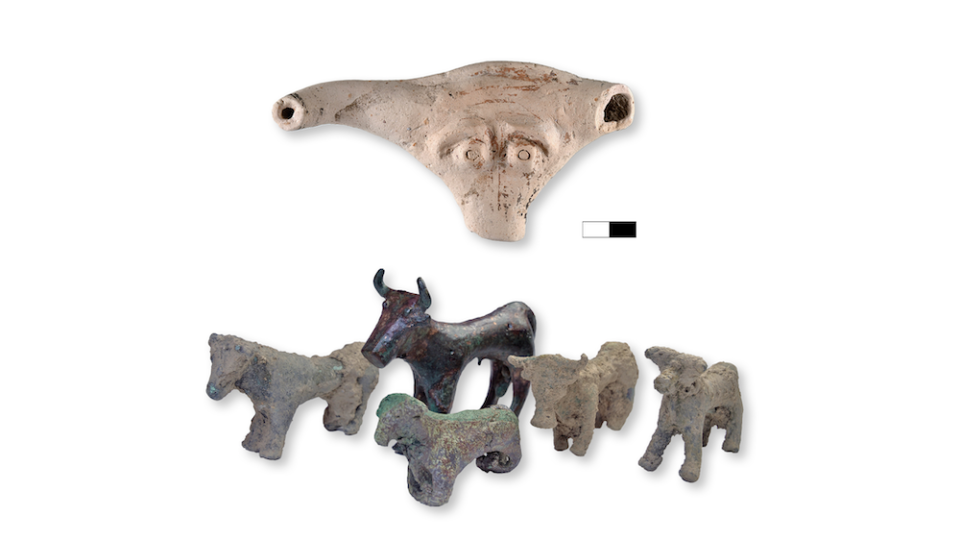Bears not ready to sell Arlington Heights property, cough up stake in the team originally appeared on NBC Sports Chicago
The Chicago Bears face some tough decisions surrounding their stadium aspirations after being left off Illinois’ $53 billion spring legislative budget. But they’re not ready to steer off building a new stadium on the lakefront.
On Tuesday, Kevin Warren was asked by Fox 32 Chicago Tuesday at the Lincoln Union about whether or not the organization is open to selling minority stakes in the team to generate more private investment for the stadium.
Warren swiftly declined that as an option for the organization.
“That’s something that we have not talked about. That’s something that is not on the table at this point in time,” Warren said when asked about the Bears selling minority ownership in the team. “It’s just not, and I don’t ever visualize that becoming a part of the discussion. We don’t think it’s necessary to do.
“Never say never. But that is not something that we would ever focus on.”
Selling minority shares in a team to generate more funds isn’t an uncommon practice. In 2015, the Ricketts family sold stakes in the Chicago Cubs to access more funding for renovations to Wrigley Field.
But, let’s not forget the Bears have another option. They have the 326 acres of land they purchased in February 2023 in Arlington Heights — the initial destination the Bears intended to construct a new stadium.
But Warren is steadfast about the organization’s focus on building on Chicago’s lakefront.
“As of today, we’re the largest landowner, and really these stadiums take so much energy, my focus has been on Chicago,” Warren told The Daily Herald.
Last the Bears left off, they stood at a stalemate with Arlington Heights school districts about property valuation. The schools see the property valued closer to the price the Bears paid for the land, handing them a higher-than-desired annual tax bill.
In April 2024, the Bears announced their plans to construct a stadium on the lakefront, officially shifting their focus from Arlington Heights back to Chicago. But Arlington Heights Trustee Jim Bertucci says the Bears have yet to close the door on their 326-acre property in the suburbs.
“Arlington Heights is ready to go back to talking as soon as the Bears are ready to go back to talking,” Bertucci said to the Daily Herald. “By no means do I think is it over. … If they want to come back and look more seriously again at Arlington Heights, I think we’re going to have a better path for them than was in the past, and maybe an easier path than what’s happening in Chicago.”
As it stands, the Bears are laser-focused on building in Chicago despite the state’s reluctance to support that plan with public dollars, which their stadium project needs to complete.
Bears COO and Executive Vice President of Stadium Development Karen Murphy said in an April presentation that the team expects the entire stadium project to cost $4.7 billion: $3.2 for the stadium itself and just over $300 million for the infrastructure required to open it, plus another $1.2 billion for two other phases of development.
In March, the team confirmed it would contribute $2 billion dollars to fund the majority of the project. A slide in the presentation clarified that the number would be closer to $2.025 billion dollars. After that, the team would look to an NFL stadium program for a $300 million loan.
That leaves a $900 million gap for the stadium financing itself. The Bears’ plan has them looking to a bond mechanism in the Illinois Sports Facilities Authority program to make up the difference. They said a 2% hotel tax that is already in place for the ISFA should be able to make up the $900 million they need from public funds.
There wasn’t a clear answer as to where the team would get the $300 million for the infrastructure, however. Murphy said the team is still working with the state and looking into different funding sources.
If the team gets the public funding needed to open the stadium, they said there will be two more phases of development requiring public money: one to maximize infrastructure for the stadium and surrounding campus totaling $510 million, and another phase for “optional infrastructure to enhance the campus, improve circulation, and maximize public economic benefits,” totaling $665 million.
Add up all three phases plus the IFSA funding, and it’s nearly $2.4 billion in public money.
Responding to the Bears’ exclusion from the spring legislative budget, Warren was understanding.
“I don’t think I’ve ever been disappointed in anything. I understand these are big projects,” Warren said when asked if he was disappointed the Bears weren’t included. “They take time, energy and effort to come together. They’re expensive. You have to have foresight, you have to have vision, you have to have wisdom.
“I understand this is part of the process. I strongly believe we need a new stadium. For Chicago to have never hosted a Super Bowl, a Final Four, a College Football Playoff, these mega-events. We’re losing out.”
It’s important to note the Bears did not explicitly ask for a bill or legislation to be passed during this session. However, during their stadium proposal presentation in April, Warren was hopeful of getting something done as quickly as possible.
It’s well-documented that Illinois Gov. J.B. Pritzker isn’t motivated to support the Bears’ stadium plans with public dollars. His press secretary called the Bears’ funding plan a “non-starter for the state.”
Is Warren surprised by the legislative pushback to his plans to build a new stadium with public money included?
“I would say no,” Warren said. “Interestingly enough, every jurisdiction has its own way of doing business. This is exactly what I expected to do. … This is an election year. We have people who don’t have meals to eat. We have people sleeping on the street. We have a lot of complex issues that we are dealing with.
“I’m a realist to understand that these projects are not something you do over a weekend.”
And giving up an estate in a team that’s been family-owned for over 100 years isn’t something you do over the weekend, either, according to Warren.
“This family has owned this team for almost 105 years,” Warren said of the McCaskeys. “That’s the focus. And nothing regarding private equity has been passed in the NFL. We made it very clear our commitment. Anytime you put up over a $2 billion investment into a city it shows our commitment to doing the right thing for the right reasons.”
Click here to follow the Under Center Podcast.
This embedded content is not available in your region.
Signup bonus from





